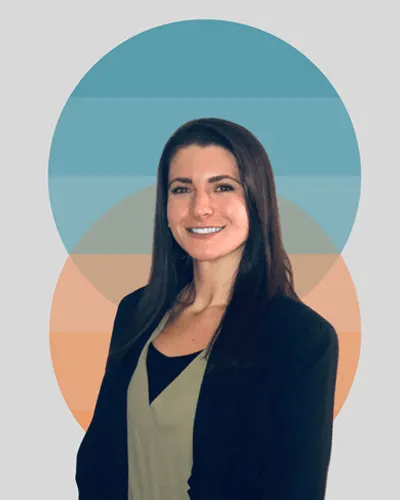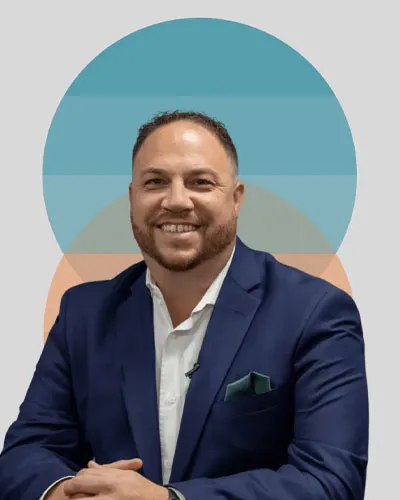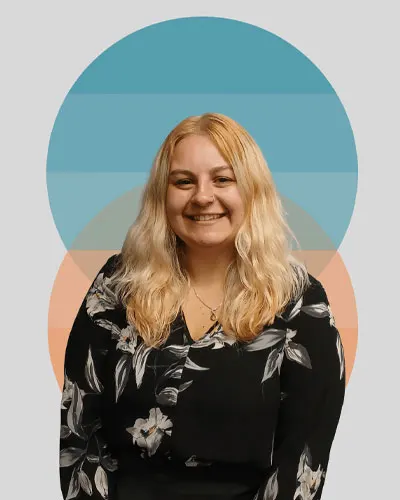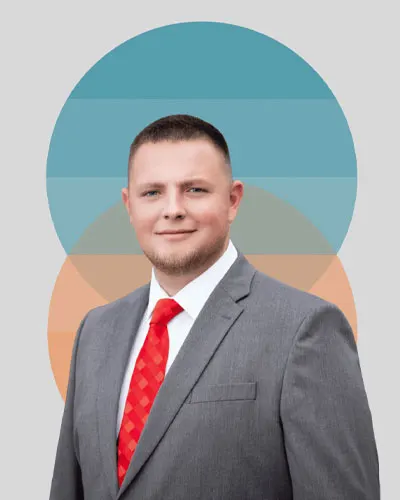Expert Evidence-Based Therapeutic Care
The Lead Drug & Alcohol Rehab Center in New Jersey
Welcome to Epiphany Wellness in Blackwood, New Jersey
Starting your recovery journey can feel overwhelming. At Epiphany Wellness, we honor the courage it takes to reach out for help and offer a safe, supportive environment where healing and transformation can happen. Our New Jersey location combines evidence‑based addiction treatment with compassionate, personalized care to help you build a healthier, happier, purpose‑filled life.
It’s Time For Your Epiphany.
Welcome To Epiphany Wellness.
Explore Our New Jersey Facility
Epiphany Wellness – Blackwood, NJ
461 NJ-168,
Blackwood, NJ
08012
Why Addiction Treatment Matters in New Jersey
- New Jersey continues to face significant substance‑use challenges. The state records roughly 60,000 treatment admissions each year, and heroin is involved in about 42 % of those admissions [1].
- Overdose deaths average 2 805 per year, which equates to about 31.7 deaths per 100 000 residents [2].
- There are 383 licensed treatment facilities, but only 52 offer inpatient care, while 343 are outpatient programs. These figures illustrate both the scope of the crisis and the need for high‑quality, accessible treatment [3].
Substance use disorders are progressive illnesses. Warning signs include developing tolerance, experiencing withdrawal symptoms, losing control over use, neglecting responsibilities and taking risks to obtain or use substances.
Recognising these signs early and seeking help is critical to getting sober and saving your life. Recovery is possible, reach out to Epiphany Wellness in New Jersey today and start your journey to a new life of sobriety.
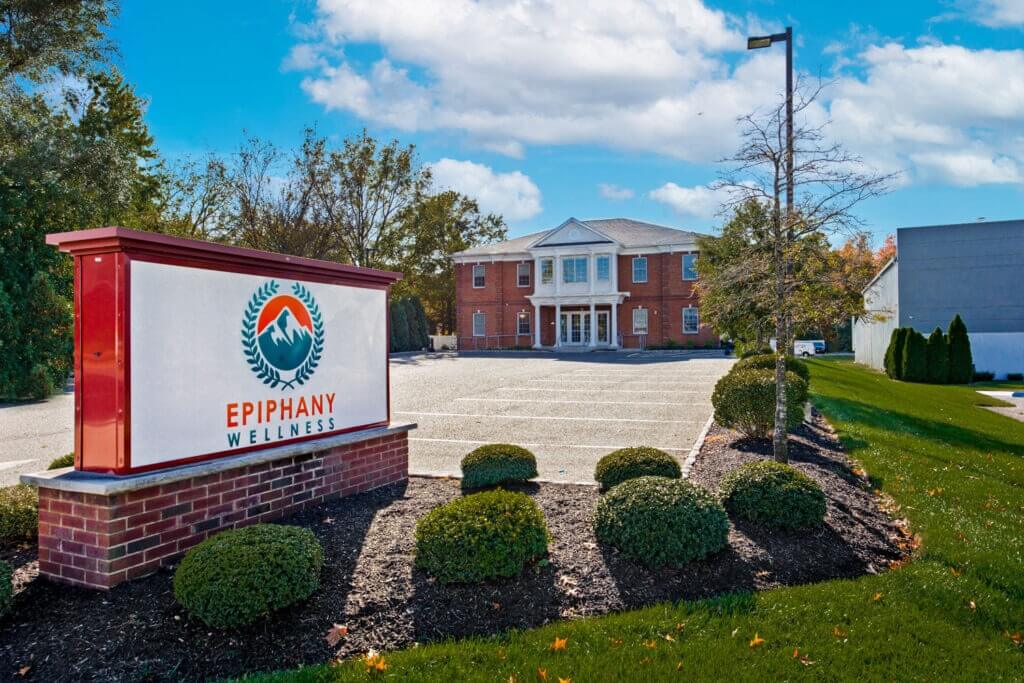
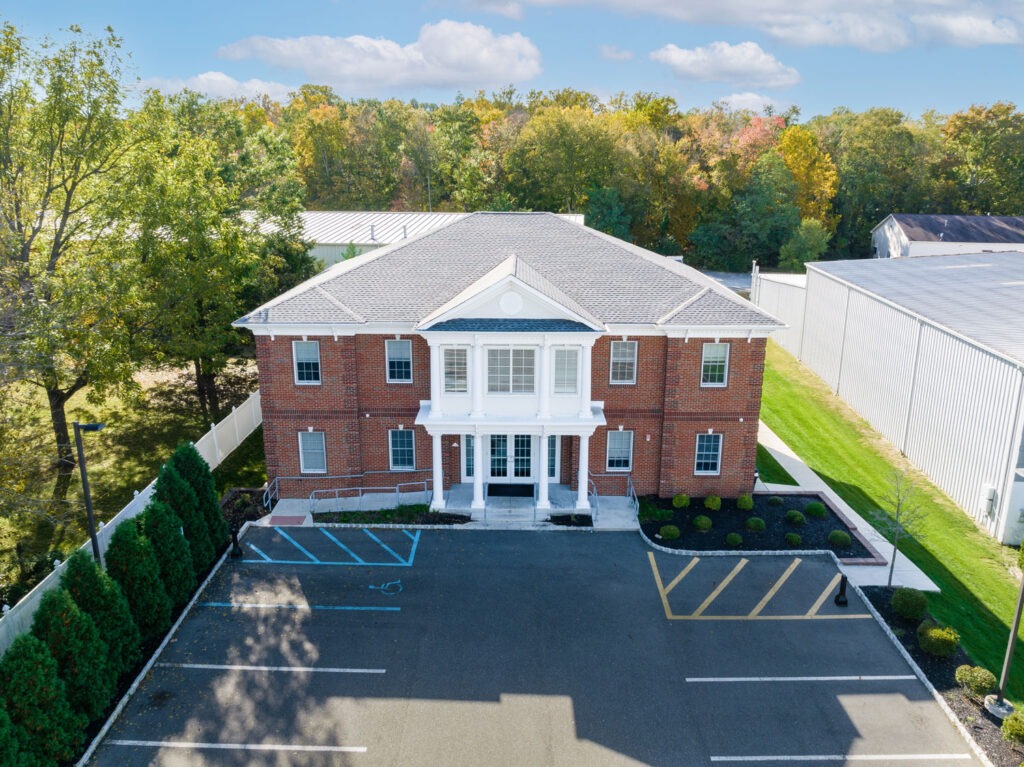
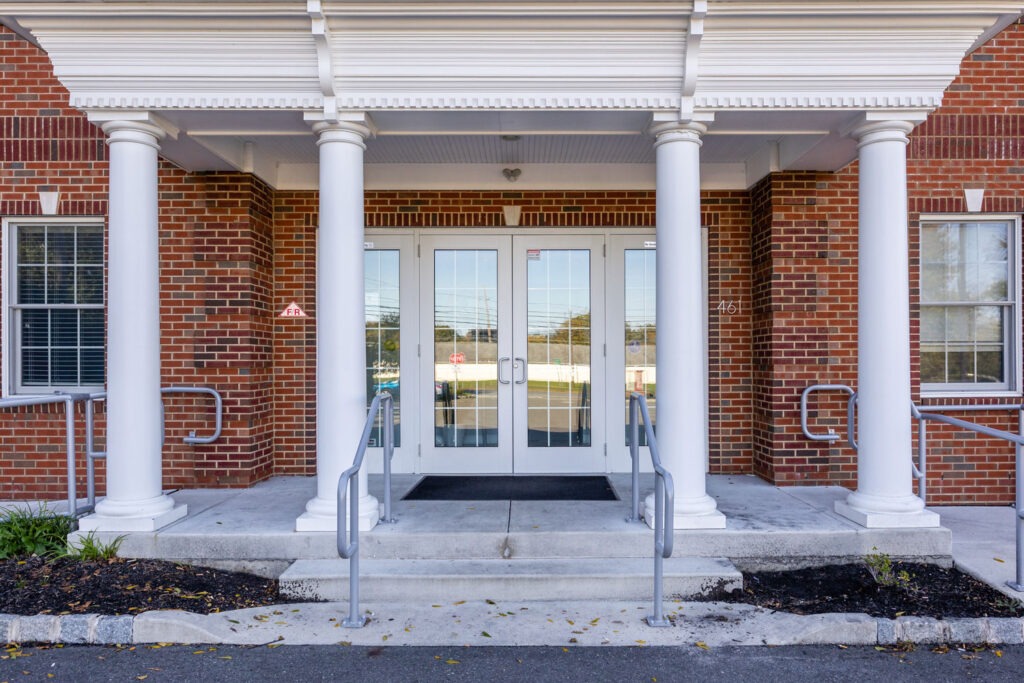
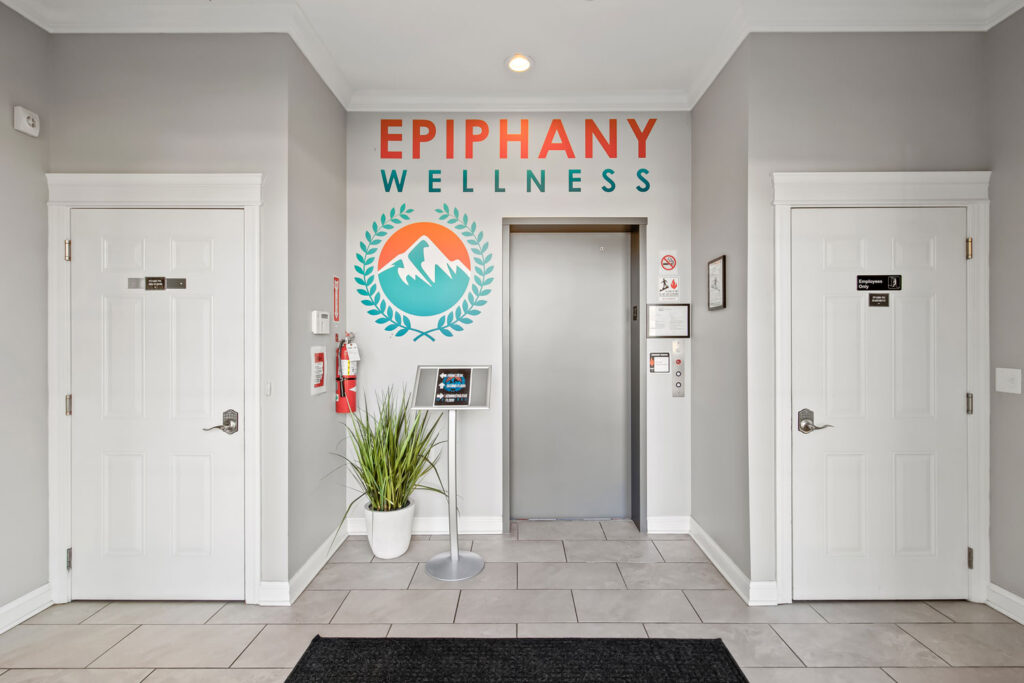
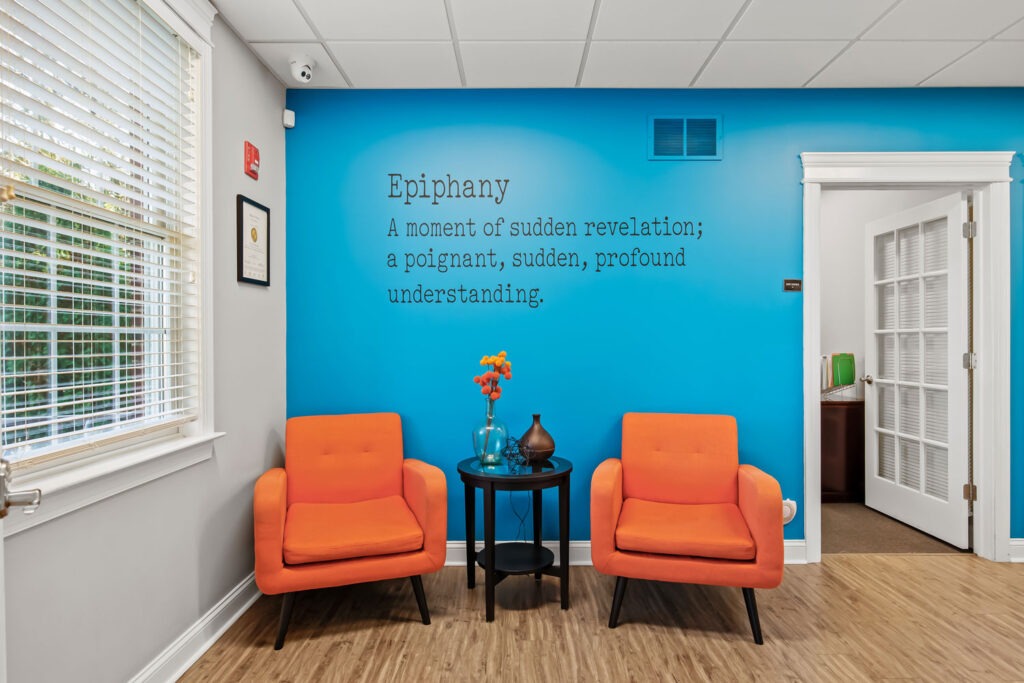
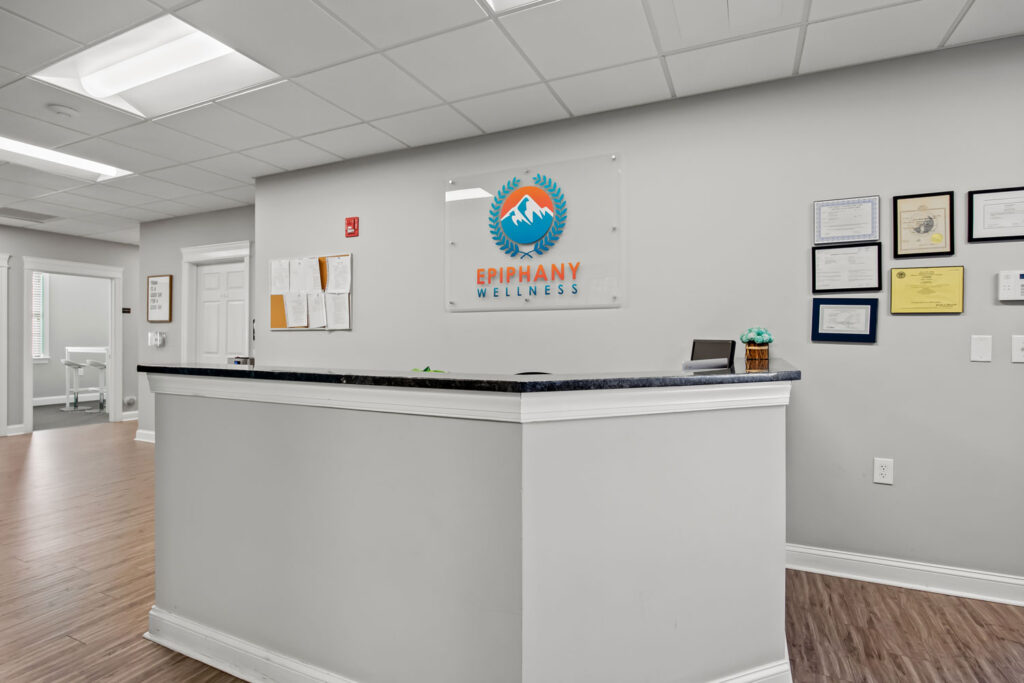
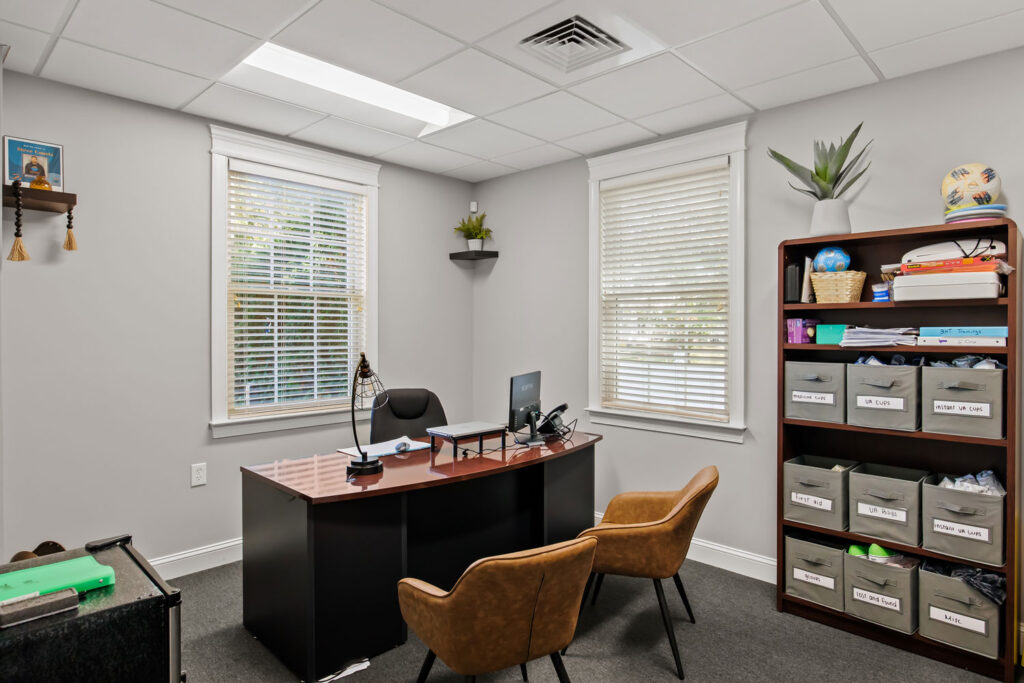
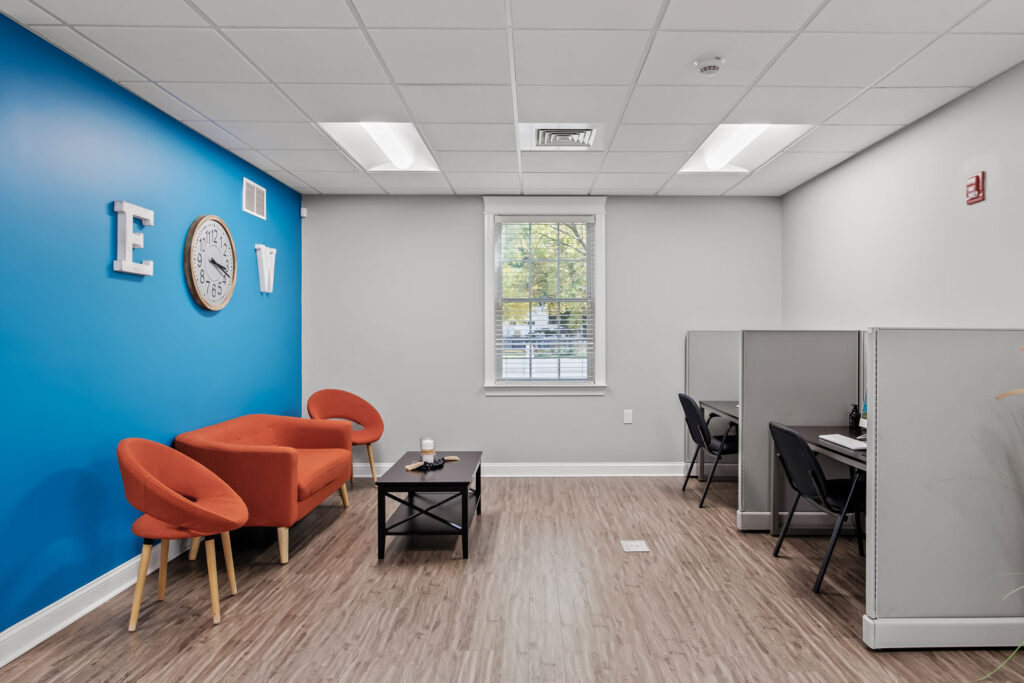
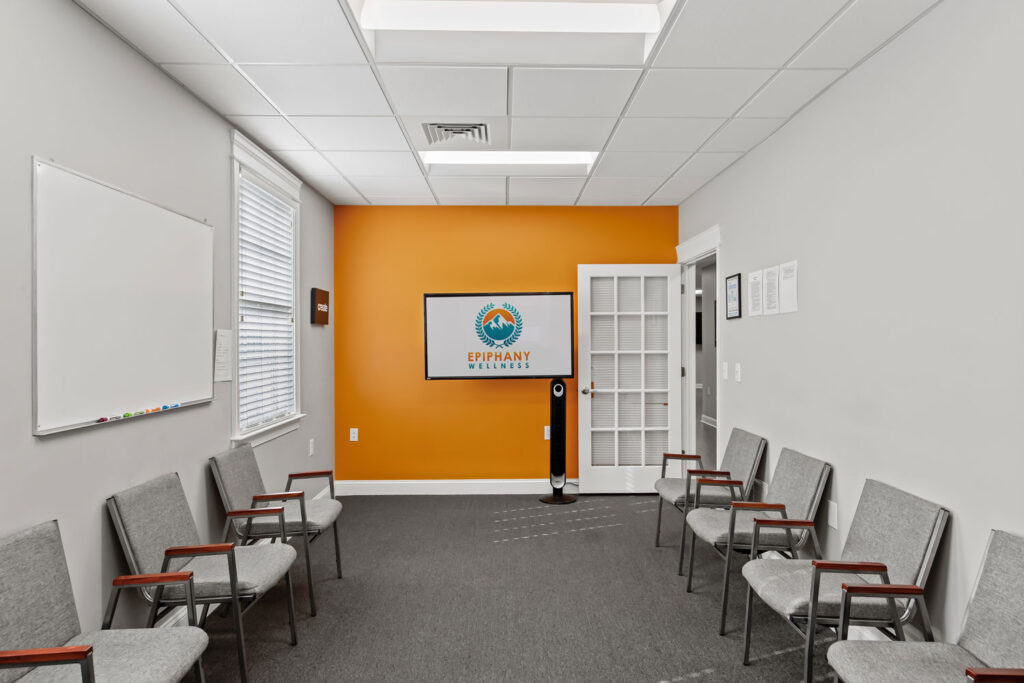
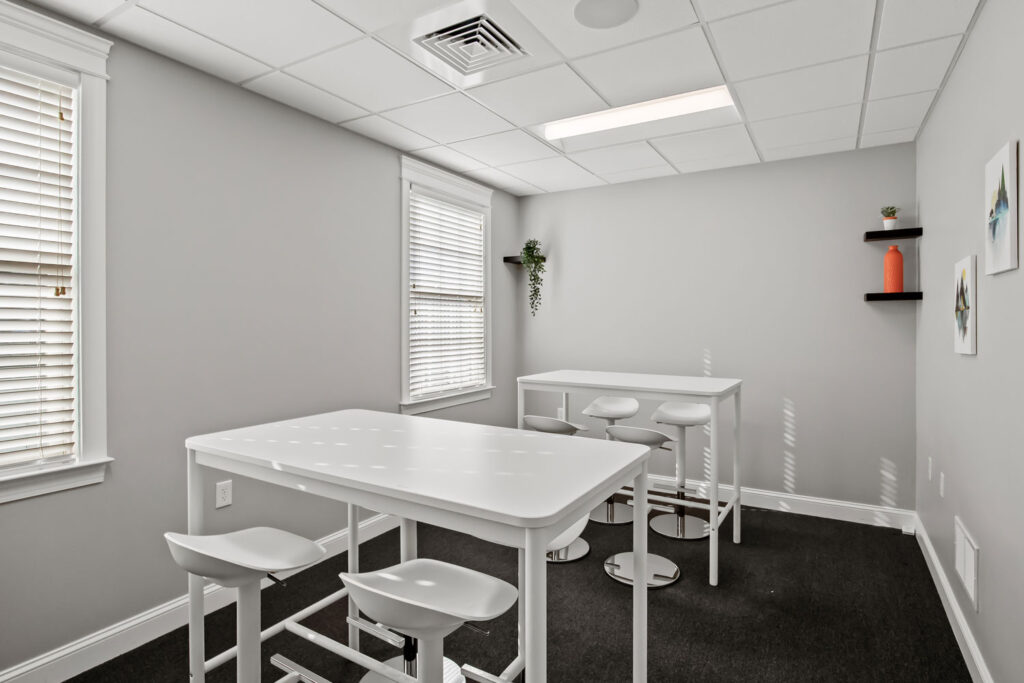
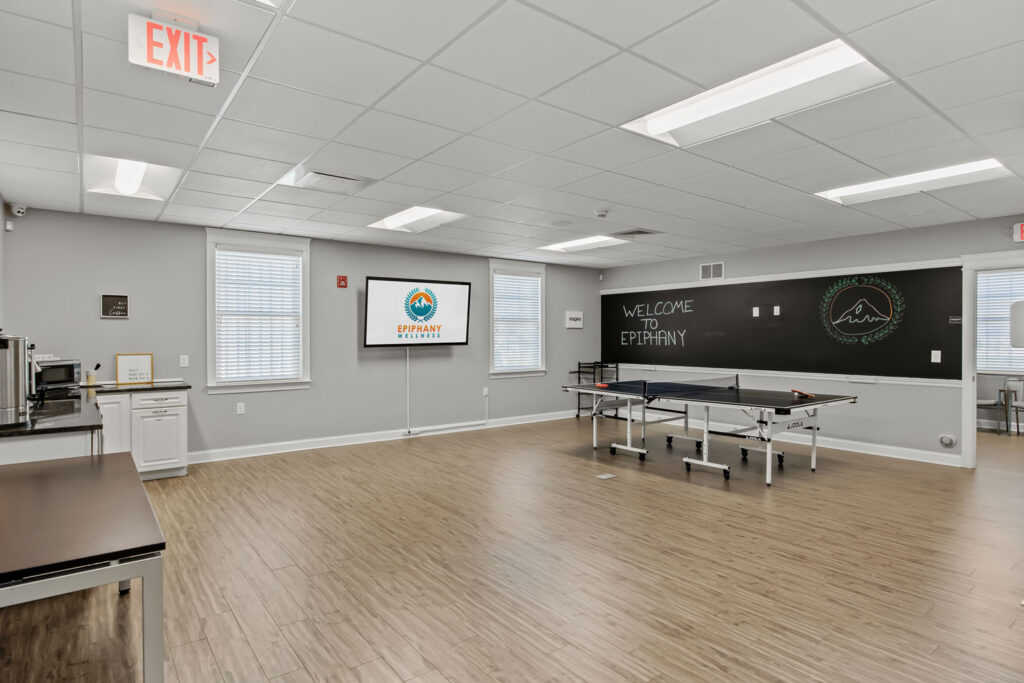
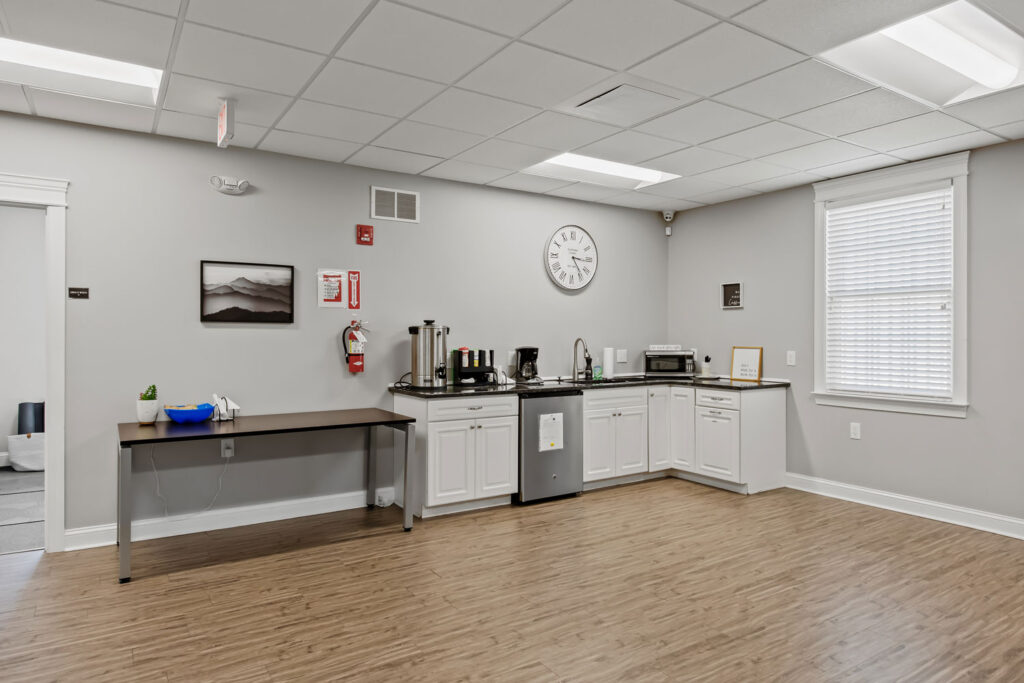
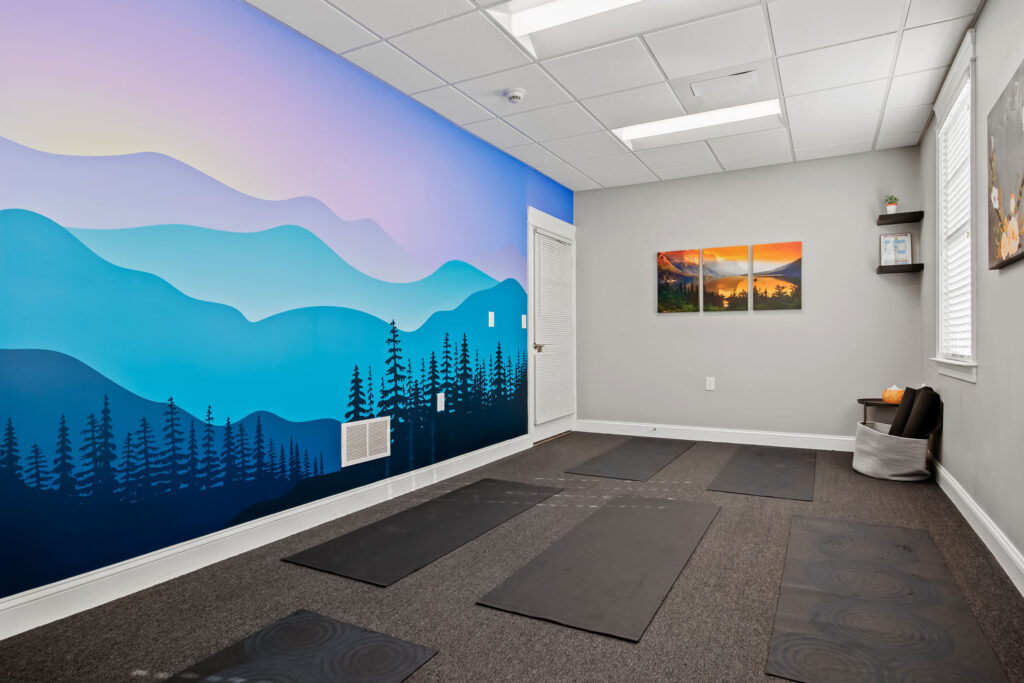
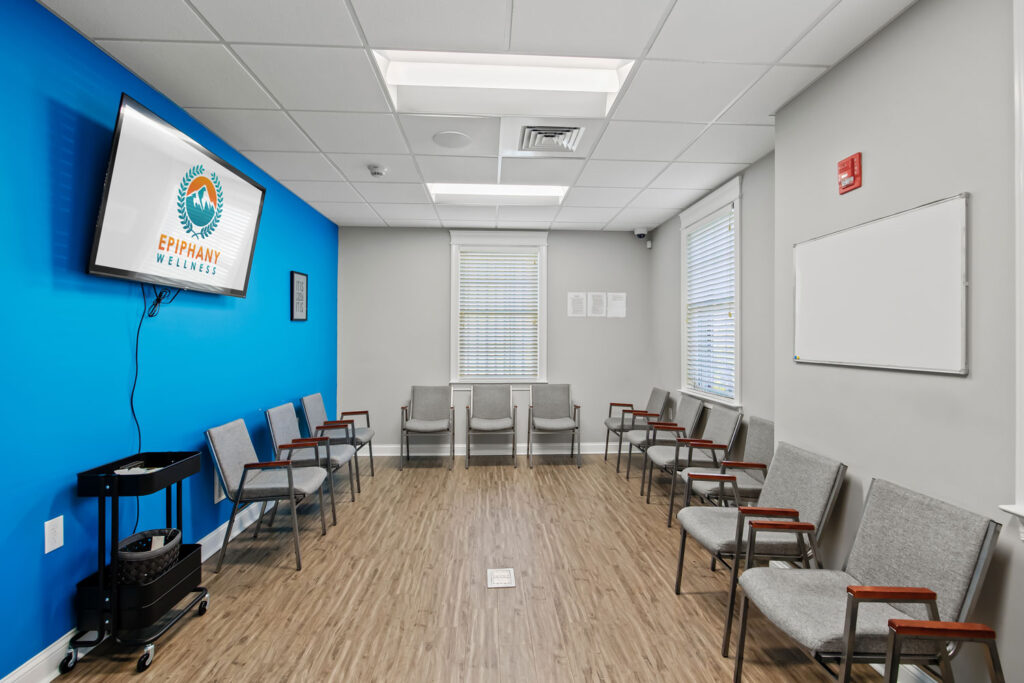
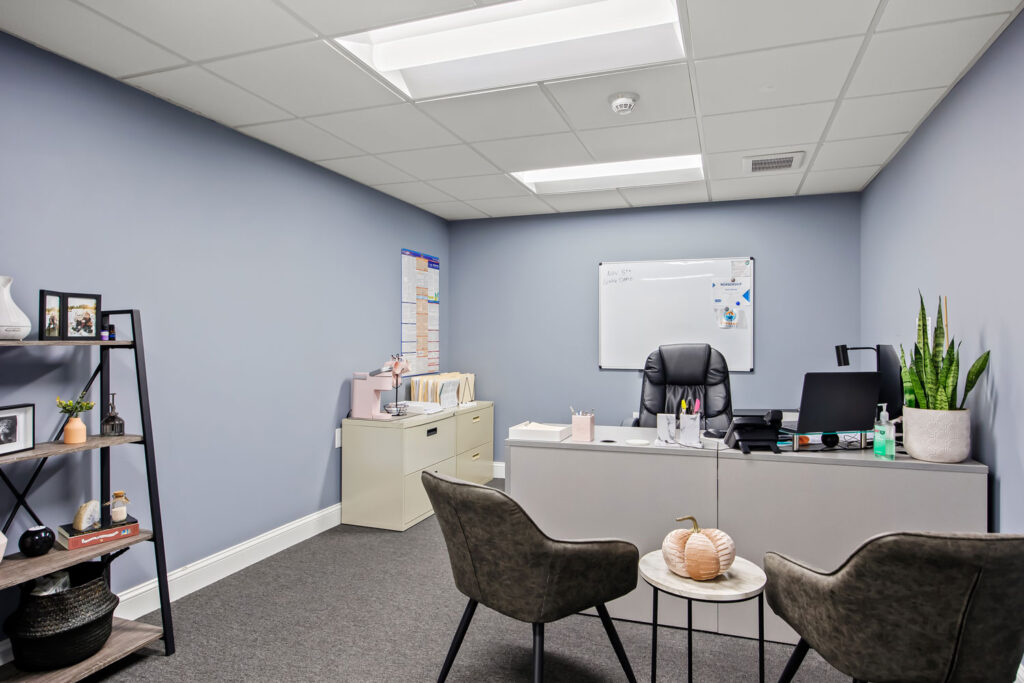
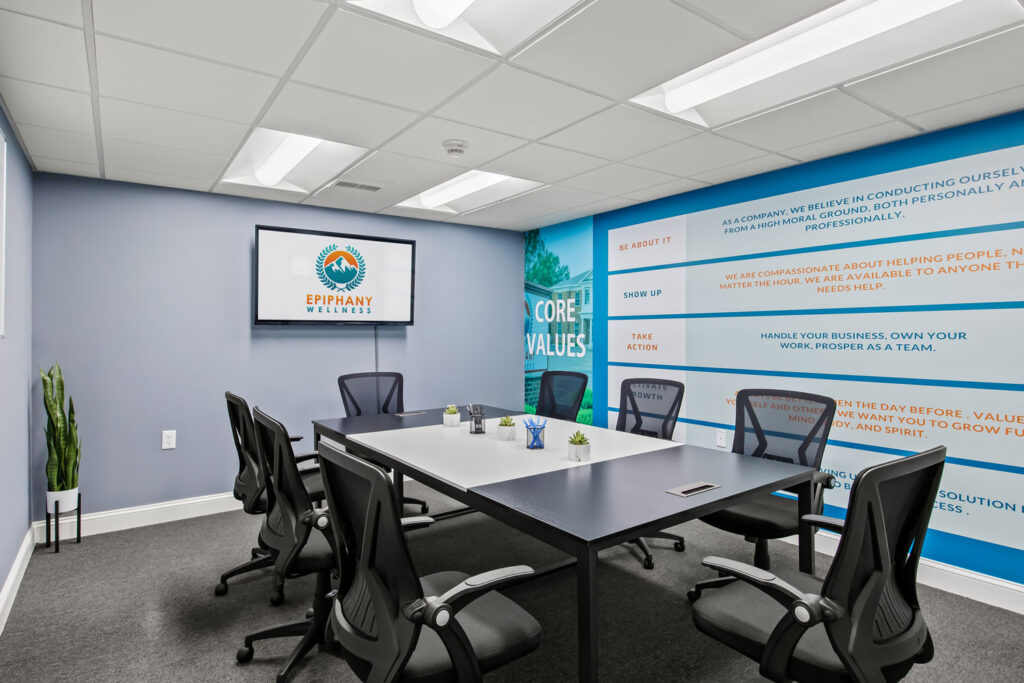
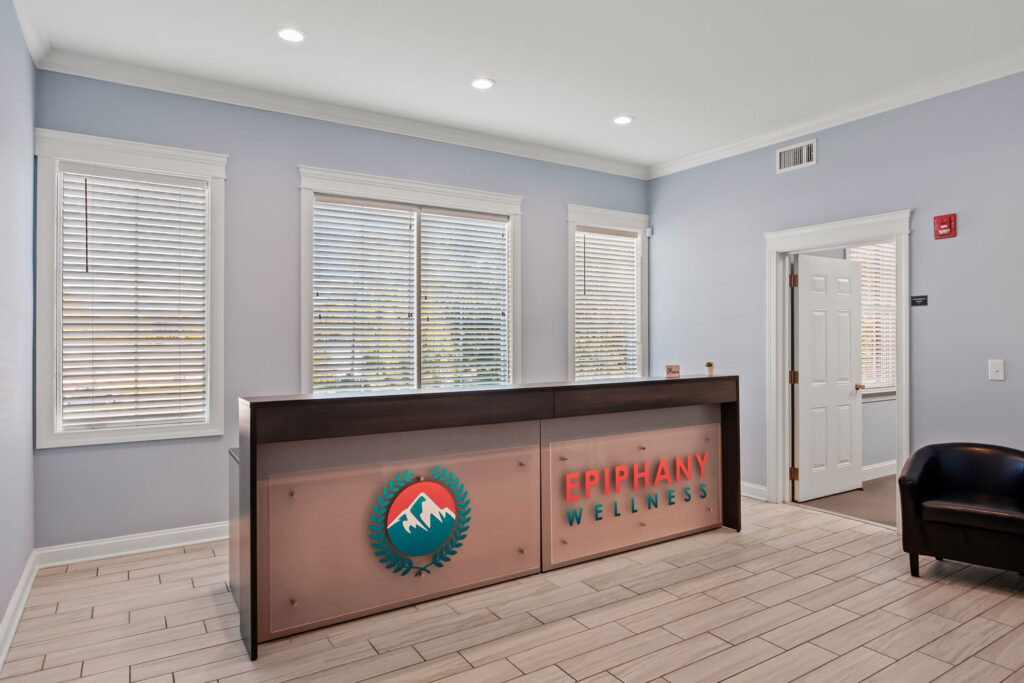
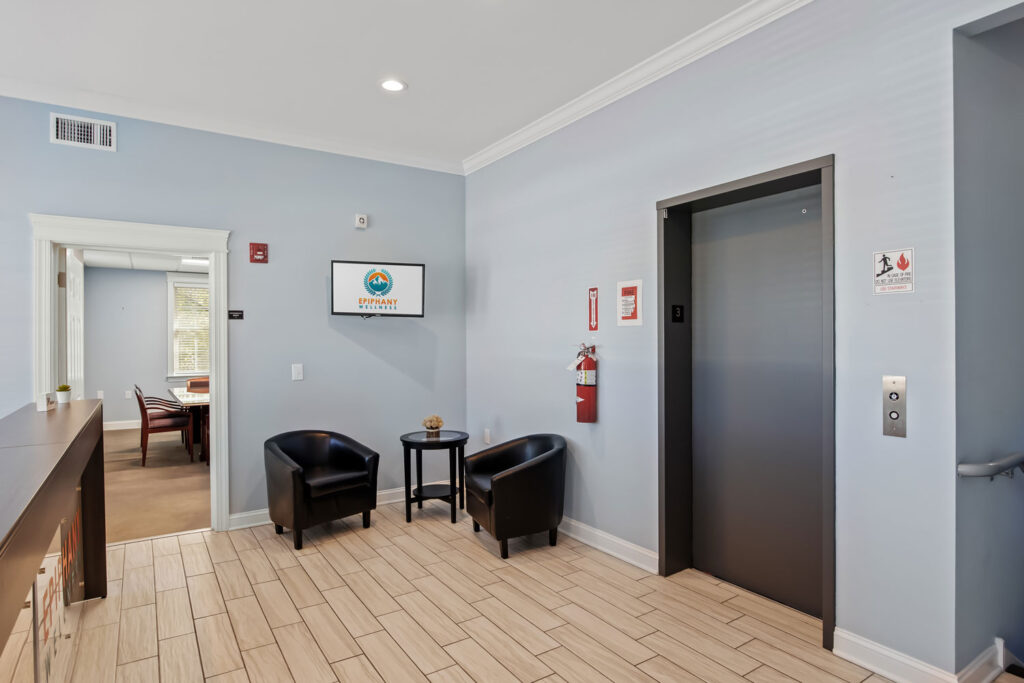
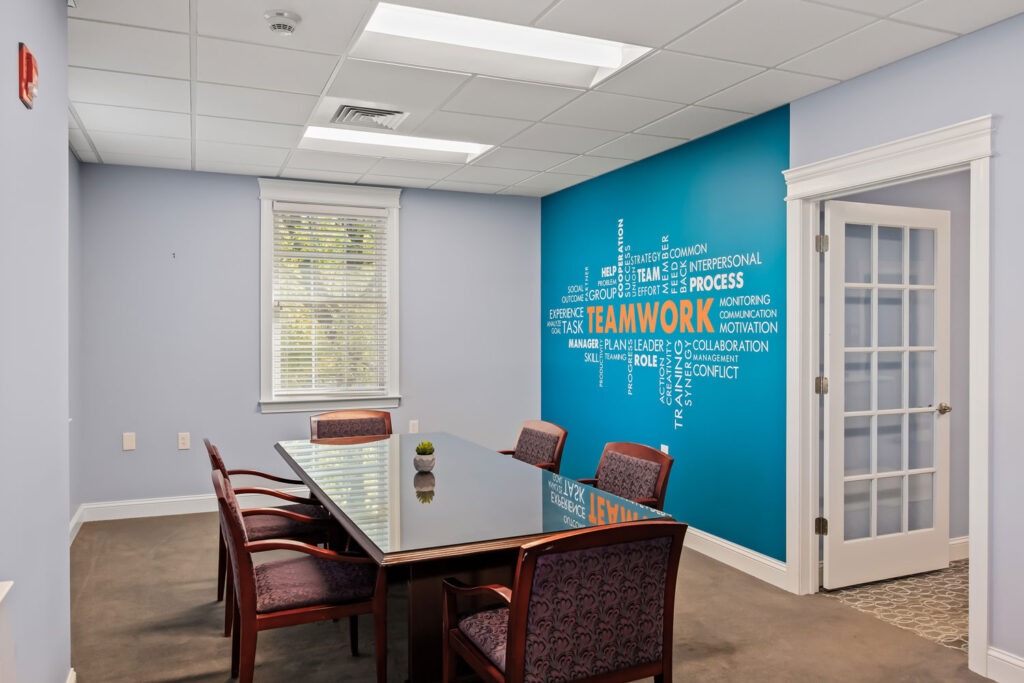
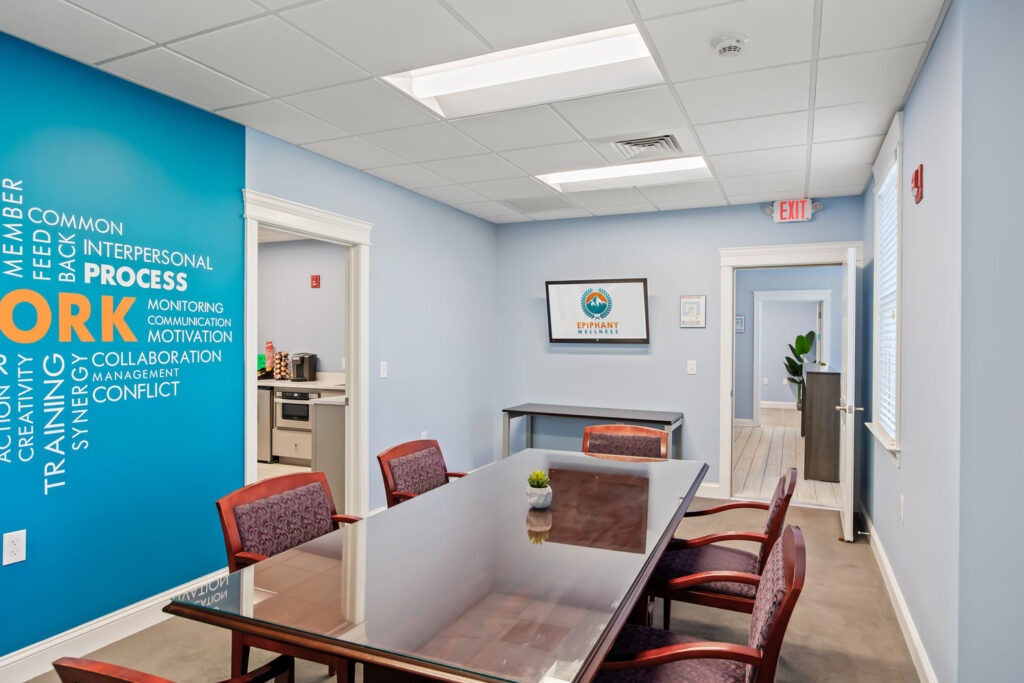
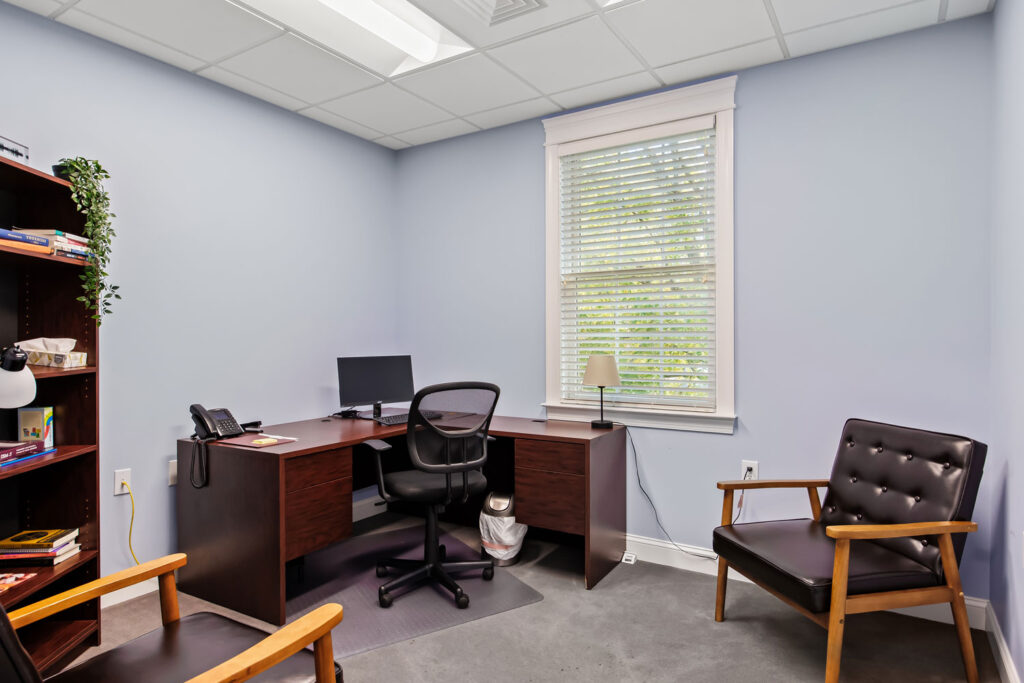
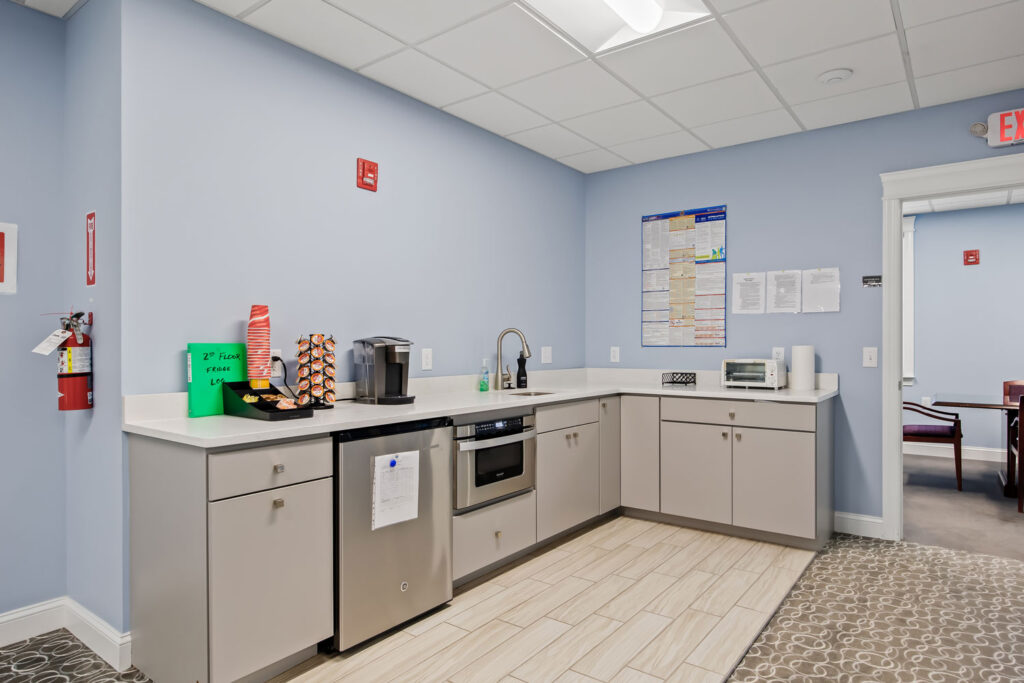
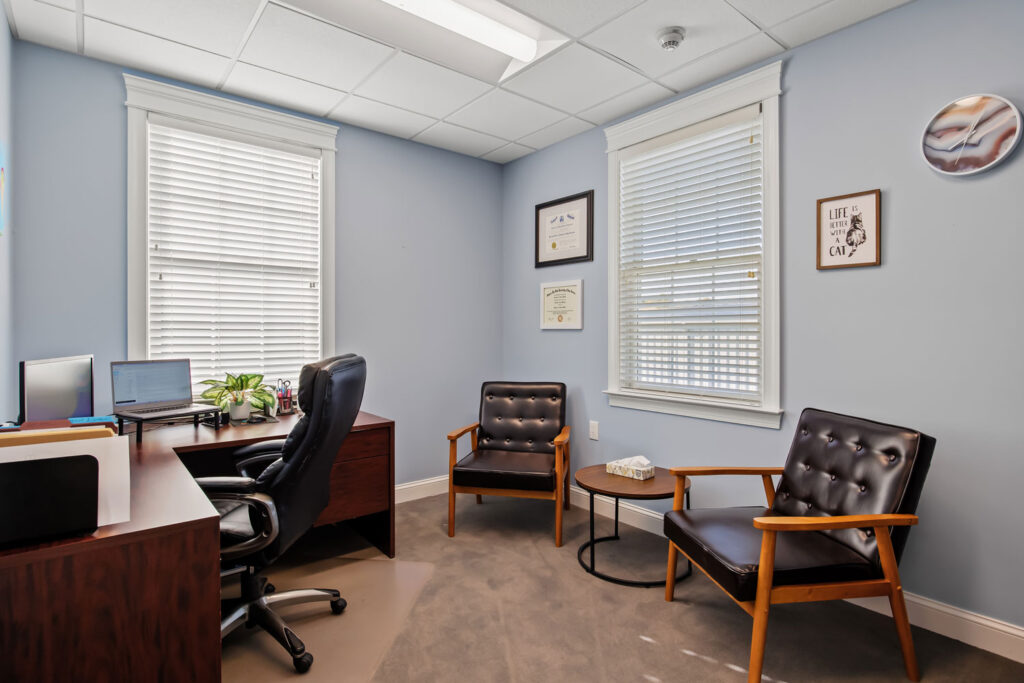
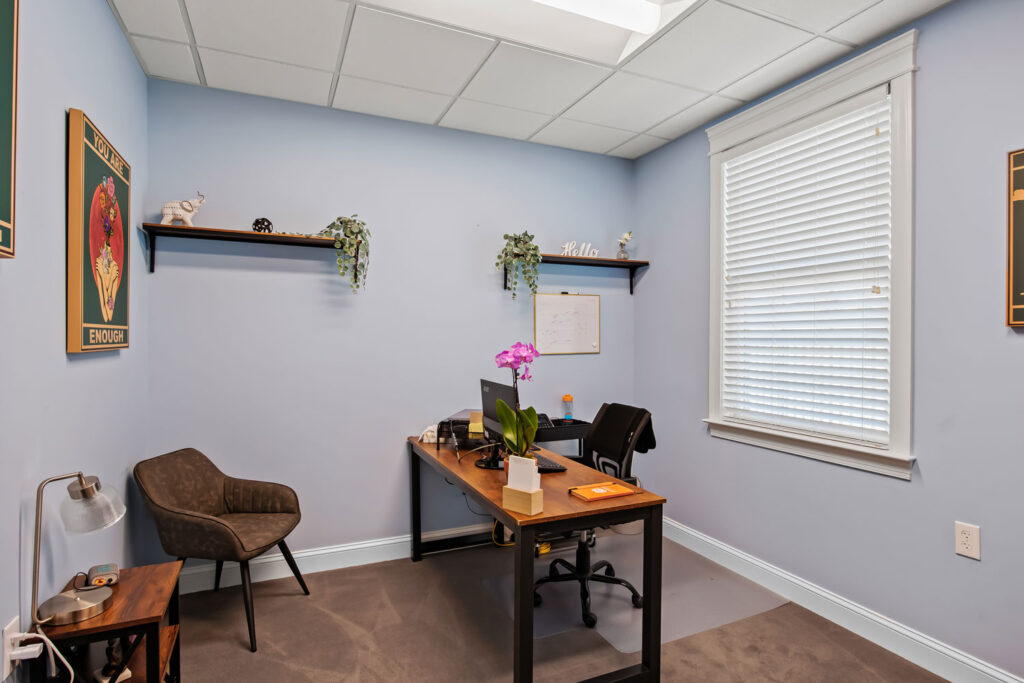
Specialized Care for a Wide Range of Addictions
At our treatment center in New Jersey, we provide comprehensive care for a wide range of substance use disorders, recognizing that each addiction presents its own challenges and requires a personalized approach. Our clinicians specialize in treating dependencies to heroin, fentanyl, prescription opioids, cocaine, crack cocaine, methamphetamine, benzodiazepines, alcohol, and a variety of emerging synthetic substances. Whether someone is struggling with the intense physical dependence of opioids or the powerful psychological grip of stimulants, our team uses evidence-based treatment methods that address both the neurological and behavioral components of addiction. No two journeys look the same, and our goal is to meet each individual exactly where they are with the right level of support.
Beyond addressing the substance itself, we take a whole-person approach to understanding the root causes and mental-health factors that often accompany addiction. Many clients come to us carrying trauma, anxiety, depression, or other co-occurring disorders that intensify their symptoms and make recovery feel out of reach. In New Jersey, our integrated model allows clients to receive addiction treatment and mental-health care under one roof, ensuring they receive consistent, coordinated support. Through a combination of therapy, medication-assisted treatment when appropriate, and individualized care planning, we help clients gain stability, rebuild emotional resilience, and regain control of their lives, one step, one day, and one breakthrough at a time.
We Accept Most Major Health Insurance Plans
Find out if your insurance plan covers treatement at Epiphany Wellness







Our Accreditations
Why Choose Us
Treatment Options at Epiphany Wellness
Holistic Treatment Options: What Our New Jersey Recovery Center Offers
Detox Placement
Partial Hospitalization Program (PHP)
Intensive Outpatient Program (IOP)
Outpatient Dual Diagnosis Program
Therapeutic Modalities Offered At Our Addiction Treatment Center in Blackwood, NJ

Rational Emotive Behavior Therapy (REBT)
Rational Emotive Behavior Therapy (REBT) is based on the belief that thoughts, emotions, and behaviors are all interconnected.
The goal of REBT psychotherapy is to help individuals identify and challenge irrational belief systems and maladaptive behaviors and replace them with more constructive patterns.

Acceptance And Commitment Therapy
Acceptance and Commitment Therapy (ACT) is a form of psychotherapy based on mindfulness practices.
ACT aims to help patients accept their negative thoughts and emotions and realize they are not defined by them while still making active progress toward their goals.

Cognitive Behavioral Therapy (CBT)
CBT is a type of psychotherapy that explores the connection between emotions and subsequent behaviors, with the objective of identifying negative or irrational thought patterns that contribute to emotional and behavioral problems. CBT has been proven to be effective in substance use disorders and is considered to be one of the “Gold Standards” of SUD therapy.
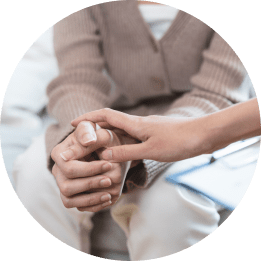
Experiential Therapy
Experiential psychotherapy is a holistic approach that involves the patient engaging in activities or experiences as a means of exploring and processing negative emotions, traumas, behaviors, and thought processes.
Experiential therapy enables participants to use non-verbal forms of emotional processing to work through challenges they face.

Family Therapy
Family therapy – also known as family counseling – is a treatment approach that assists family members, such as spouses, partners, and children, with the effects of substance abuse or mental illness.
Family counseling can be used to treat many different mental health conditions and the lasting effects of addiction, including stress, grief, and anger.

Psychoeducation Therapy
Psychoeducation is a therapeutic intervention in which a therapist provides clients with information about their diagnosis, symptoms, and treatment methods in a structured way. The goal is to help the client understand their diagnosis to ensure they follow the recommendations.
Our Staff in New Jersey
A Recovery Resource For NJ Families and Patients
At Epiphany Wellness, we’re committed to reinventing the treatment & recovery experience for New Jersey patients, families, and visitors. We’re passionate about being a health and wellness resource that promotes lasting recovery for those suffering from mental health and substance use disorders.
Our promise to patients and families is to collaborate with you to establish an individualized treatment plan that meets your needs and facilitates recovery through evidence-based interventions and support.

Traveling Versus Staying in-state for Drug Rehab
The Benefits of Staying Close
Staying close to home during recovery offers additional comforts that long-distance treatment simply can’t fulfill. Remaining in familiar surroundings fosters a sense of security and stability that is beneficial to recovery. Near home, you would still have access to positive support systems and long-term community investment. Once formal treatment has ended, you can seamlessly transition into long-term aftercare or alumni programs right in your own backyard, with some of the same faces you’ve come to trust.
The Case for Traveling to New Jersey for Drug Rehabilitation
For some, staying close to home may be challenging or uninspiring. Putting some distance between you and your home turf could offer a fresh start in a new environment full of positive possibilities. If taking a break from home is the right path for you, Epiphany Wellness’ New Jersey town is the perfect tranquil space to slow down and focus on recovery.
Blackwood, New Jersey, is a historical town located in the wooded landscape of South Jersey. Just over 14 miles from Philadelphia, this quaint scene sits in the heart of Gloucester Township, surrounded by opportunities to explore and experience the area’s natural resources and local attractions.
Take a walk with the deer and the ducks at Blackwood Lake Park, or enjoy an exciting workout at Fun City with trampolines and rope courses for all ages. Taste the delicacies served at the Lindt Chocolate Store and walk off the calories along the half-mile loop of Grenloch Lake Trail.

What is the most common addiction problem in New Jersey?
The Department of Human Services Division of Mental Health and Addiction Services reports Heroin as the number one abused substance in New Jersey. The highly addictive opioid accounts for 42% of all treatment admissions [1].


Epiphany Wellness Substance Abuse Recovery Center: A Safe Place To Heal From the Inside Out
Healing IS possible, and help is available. If you or a loved one are struggling with the challenges of substance dependency, call and speak with a member of our admissions team today. We’re here to help you reclaim your life and create the healthy, positive future you desire.
Frequently Asked Questions About Our New Jersey Drug Rehab
What are the five rules of recovery?
According to the National Library of Medicine[2], and lived out in our own treatment playbook, the five rules for recovery are:
- Commit to changing your life. For good.
- Always be completely honest. (With yourself and with us.)
- Ask for help. (It’s okay. We can get through this together.)
- Consistently practice self-care.
- Don’t attempt to bend or circumnavigate the rules. (They’re designed with your best interests at heart. We’re on your side.
What is the most effective treatment for drug addiction?
While every person’s struggle with addiction is unique, the best approach is always a holistic treatment rehab program. This is a program that incorporates treatment measures for the person, not just the behavior or disorder. Treatment that addresses the whole person – the body, mind, and spirit – is invaluable in the success of addiction recovery.
Holistic therapies include cognitive behavioral therapy, dialectical behavioral therapy, trauma-informed treatment, and spiritual guidance should all be part of effective substance use care.
How do you choose a drug and alcohol rehab in New Jersey?
When searching for a behavioral health and drug rehabilitation program in NJ, it’s essential to take into consideration the following factors to ensure you receive the best care for your dual diagnosis:
- What is their documented treatment approach? Does it emphasize holistic care?
- Do they offer personalized treatment plans? Or will you be lumped into a mass, cookie-cutter strategy?
- What is the length of treatment? Are they investing in you long-term? Or just trying to get you “over the hump?”
- Do they offer aftercare support, or will you be left to fend for yourself once treatment is over?
- What do the patient reviews say about their treatment? The staff? The facility? All of these are important.
What is the cost of rehab in New Jersey?
You or your loved one will receive an individualized treatment plan designed to meet your unique needs. Due to the high levels of customization, costs will vary. A lack of clarity on your options for payment should in no way keep you from the treatment you need. There are insurance and payment options available to help you confidently begin your recovery. Call now to verify your insurance coverage.
What is the most common addiction problem in New Jersey?
The Department of Human Services Division of Mental Health and Addiction Services reports Heroin as the number one abused substance in New Jersey. The highly addictive opioid accounts for 42% of all treatment admissions.[2]
[1] New Jersey Department of Human Services, Division of Mental Health and Addiction Services. (2017). Substance abuse overview 2016: Statewide. https://www.nj.gov/humanservices/dmhas/publications/statistical/Substance%20Abuse%20Overview/2016/Statewide.pdf
[2] Hedegaard, H., Miniño, A. M., & Warner, M. (2018). Drug overdose deaths in the United States, 1999–2017. NCHS Data Brief, (329), 1–8. Centers for Disease Control and Prevention. https://www.cdc.gov/nchs/products/databriefs/db329.htm
[3] Substance Abuse and Mental Health Services Administration. (2020). National survey of substance abuse treatment services (N-SSATS): 2020. Data on substance abuse treatment facilities. U.S. Department of Health and Human Services. https://www.samhsa.gov/data/data-we-collect/n-ssats-national-survey-substance-abuse-treatment-services
Pursue Your Epiphany. Our New Jersey Recovery Center Is Here For You.
Finding a treatment program that meets your specific needs and provides the best care for your individual circumstances is the most important part of starting your recovery journey. We want to ensure you’re empowered, equipped, and supported at every step.



